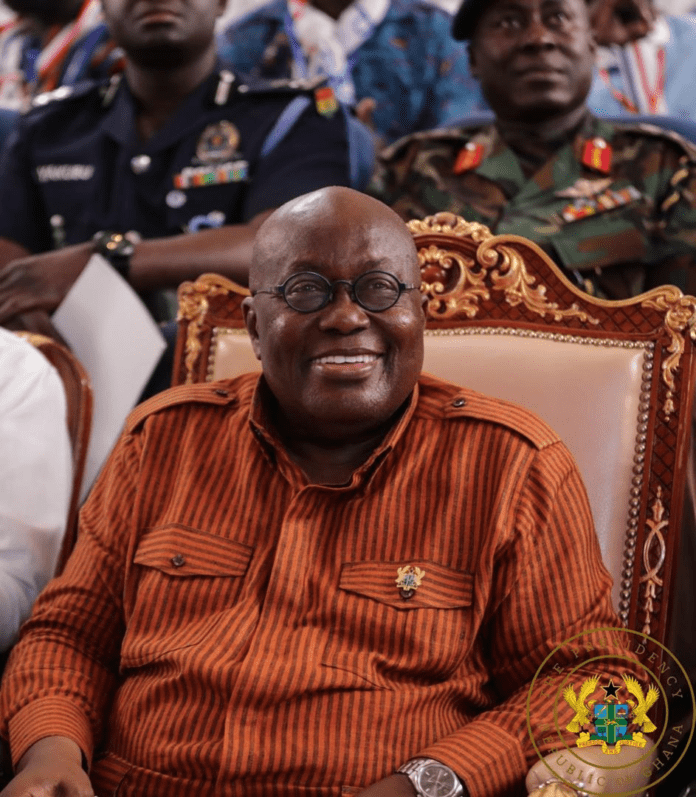
President Nana Akufo-Addo has been awarded for his contributions to the start of the African Continental Free Trade Agreement (AfCFTA).
The award was presented to President Akufo-Addo by the African Union Commission (AUC) in a virtual event held at the Union Headquarters in Addis Ababa, Ethiopia on Friday, January 15, 2021.
President Akufo-Addo is among the few African leaders to have first advocated for the creation and subsequent implementation of the AfCFTA, with Ghana being among the few countries to first ratify the trade agreement.
President Akufo-Addo’s push for the implementation of the AfCFTA saw Ghana win its bid to host the Secretariat of the AfCFTA.
Seven other African heads of state were awarded alongside the president.
They include Muhammadu Buhari of Nigeria, Felix Tshekedi of Congo, Ahmed Fattah Al-Sisi of Egypt, Mahamadou Issoufou of Niger, President Alpha Conde of Guinea, Cyril Ramaphosa of South Africa and Chairperson of the AUC, and Paul Kagame of Rwanda.
President of the African Development Bank, Dr Akinwumi Adesina, was also awarded.
King Mswati III, Ngwenyama of Eswatini and Prime Minister Abiy Ahmed of Ethiopia, alongside Nigeria’s former President, Olusegun Obasanjo were also awarded during the virtual event.
President of the Federation of West Africa Chambers of Commerce, Industries, Mines and Agriculture, Saratu Aliyu, thanked African leaders and private stakeholders for making the AfCFTA implementation possible and expressed hope that the agreement would boost e-commerce and e-business infrastructure, and develop a roadmap for the development of a digital economy to support the growth in member states.
The AfCFTA agreement has created the largest free trade area in the world measured by the number of countries participating.
The trade pact connects 1.3 billion people across 55 countries with a combined Gross Domestic Product valued at $3.4 trillion.
The AfCFTA is expected to boost intra-African trade from the current 15 per cent to over 81 per cent by 2035.






